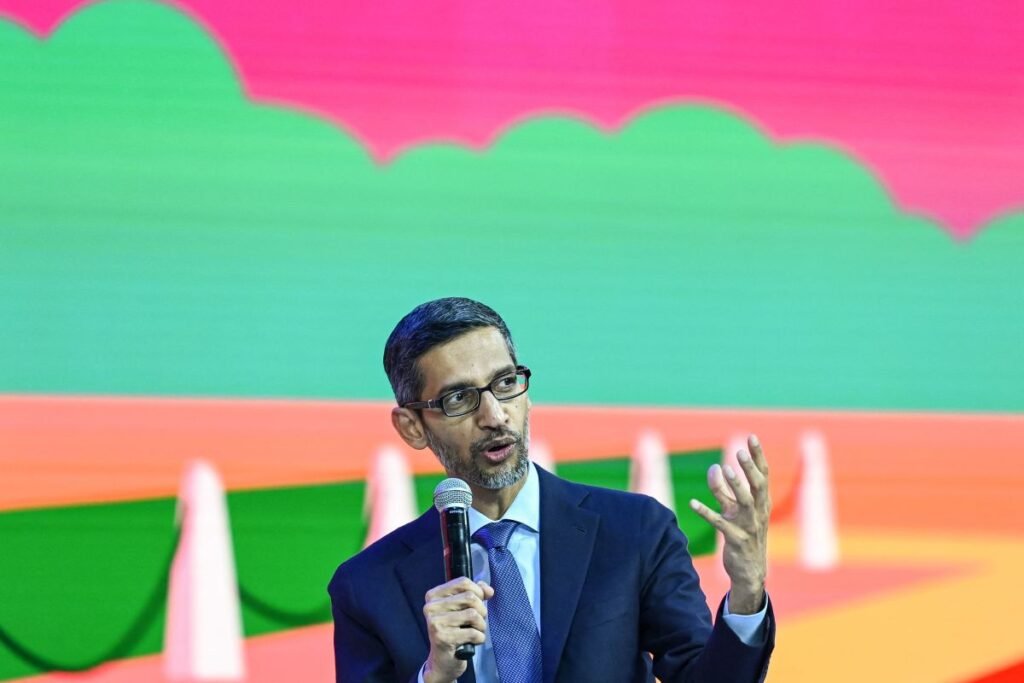Google Search is Transforming: Sundar Pichai Shares Exciting AI Plans

Google Search is undergoing a major transformation, powered by artificial intelligence (AI). During the company’s latest earnings call, CEO Sundar Pichai described this shift as a “journey” to enhance how billions of users access information.
The journey began with the introduction of AI overviews—a significant and controversial change to how Google delivers search results. But according to Pichai, this is only the start.
“As AI continues to expand the universe of queries that people can ask, 2025 is going to be one of the biggest years for search innovation yet,” Pichai said in his opening remarks.
Google Search is Becoming an AI Assistant
During the call, Pichai detailed Google’s vision of turning Search into something closer to a personal AI assistant. Powered by advanced AI systems from Google’s DeepMind research lab, the Search product is evolving to go beyond traditional links. It aspires to browse the web for users, examine pages, and deliver tailored answers.
Gone are the days of ten blue links.
This shift has been brewing for years, especially after OpenAI’s launch of ChatGPT in 2022 caught Google on its heels. While some websites and advertisers—who rely heavily on Google Search traffic—are worried about the changes, Google isn’t slowing down.
The Role of Project Astra and Gemini
One of the most exciting aspects of this transformation is Project Astra. This multimodal AI system can process live video and answer user questions about what it sees in real time. Pichai teased its potential for not just Search, but also other innovations, like powering augmented reality (AR) smart glasses with Google’s custom operating system.
Additionally, Pichai highlighted Gemini Deep Research, an AI-driven tool capable of producing detailed reports in minutes. This feature could revolutionize how users interact with Search by automating research tasks. Instead of users manually gathering information, Gemini does the heavy lifting.
“You are really dramatically expanding the types of use cases for which Search can work—things which don’t always get answered instantaneously, but can take some time to answer,” Pichai explained.
Exploring Follow-Up Questions and Chatbot-Like Features
Pichai also hinted at new interactive features for Search, including the ability to ask follow-up questions and engage in more conversational interactions. While details remain light, it seems that Google is exploring ways to make Search feel more like a chatbot.
“As you make it more easy for people to interact and ask follow-up questions, etc., I think we have an opportunity to drive further growth,” Pichai said.
From AI Overviews to the Future
Of course, Google’s AI journey hasn’t been without its hiccups. The rollout of AI overviews faced criticism for inaccuracies and bizarre hallucinations—like suggesting people eat rocks or put glue on pizza. Google acknowledged these early missteps but remains committed to improving and expanding AI functionality in Search.
Despite these challenges, Pichai’s message was clear: Google is just getting started. With ambitious plans for Project Astra, Gemini, and deeper AI integration, the future of Google Search looks poised to redefine how we interact with information.
Stay tuned—2025 might be the year that changes search forever.
Digital marketing enthusiast and industry professional in Digital technologies, Technology News, Mobile phones, software, gadgets with vast experience in the tech industry, I have a keen interest in technology, News breaking.












